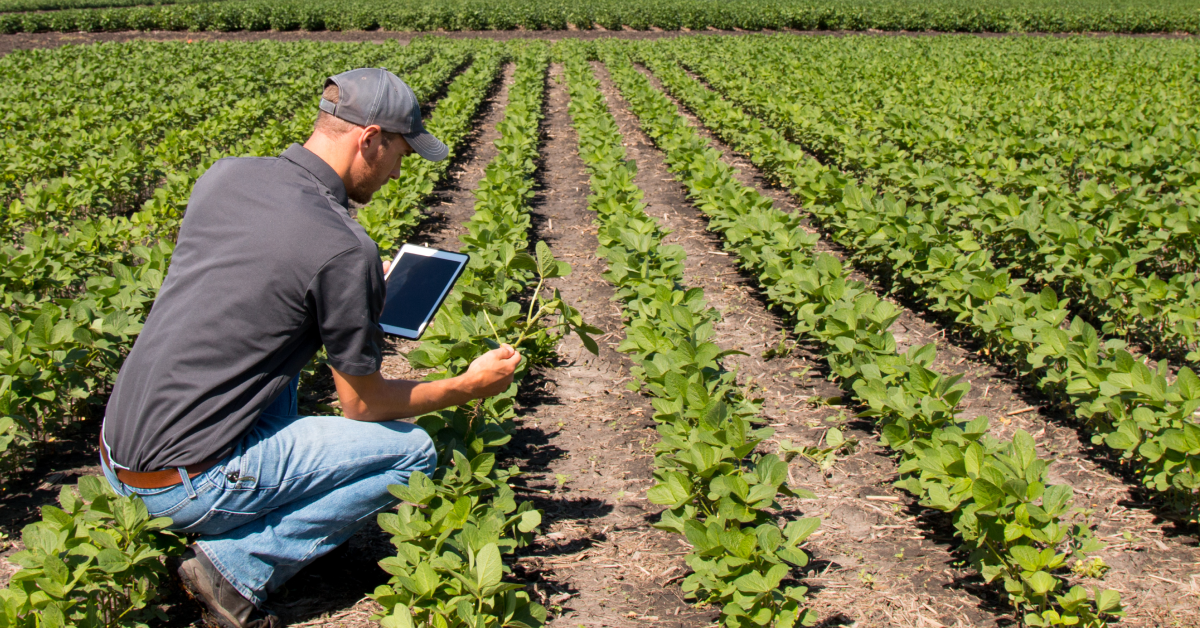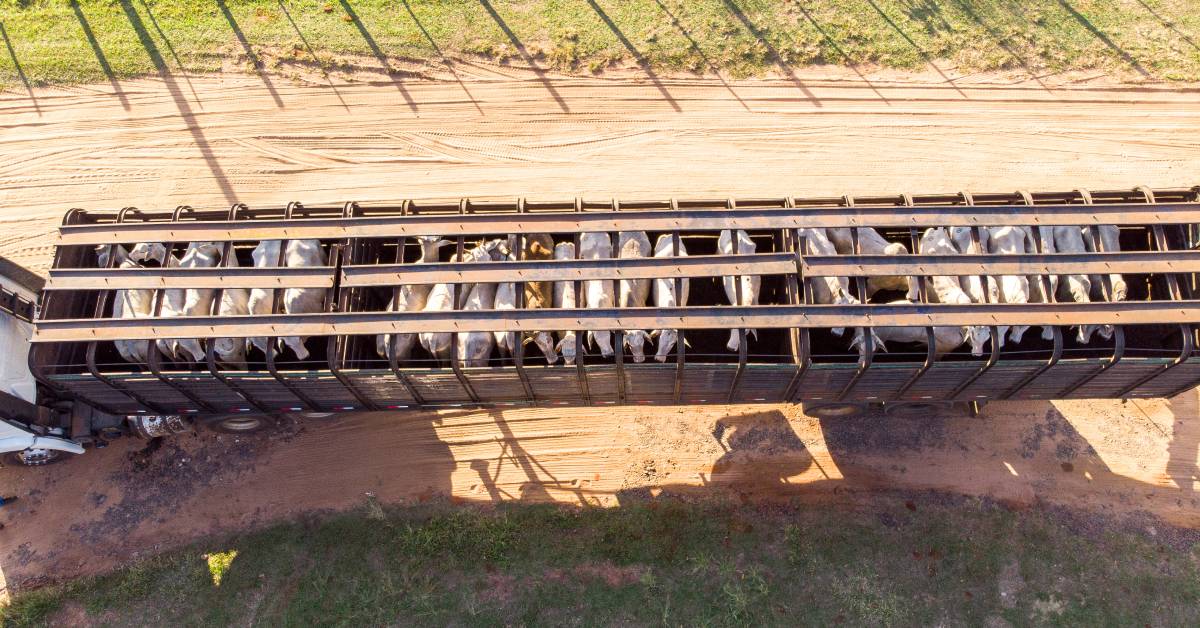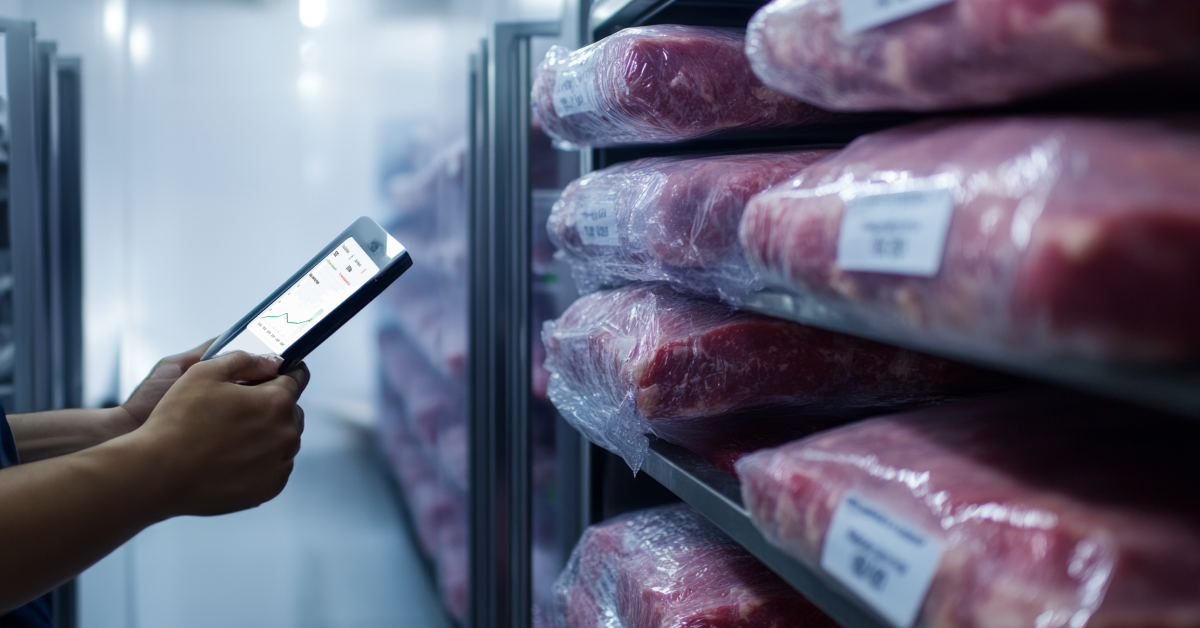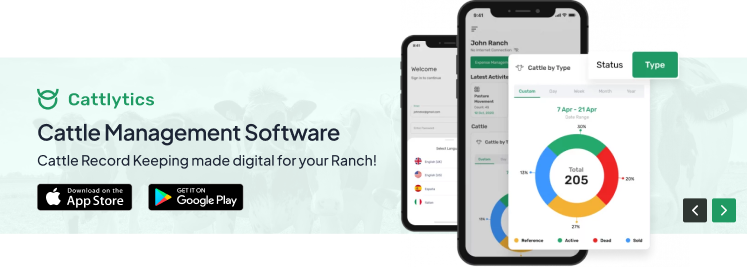Farm management stands as the cornerstone of agricultural success. It is the strategic orchestration of resources, from land and labor to technology and finance, to optimize production, profitability, and sustainability.
Effective farm management is the art and science of transforming agricultural potential into tangible results. However, the farm landscape is undergoing a profound transformation. Farmers today navigate a complex web of challenges unlike any generation before.
The agricultural industry is in flux, from the impacts of climate change to economic uncertainties, technological advancements, and evolving consumer demands. This blog will delve into the critical role of farm management in ensuring agricultural prosperity while acknowledging the formidable challenges farmers confront in 2025.
The Importance of Farm Management
Farm management is the strategic process of planning, monitoring, analyzing, and making informed decisions to optimize agricultural operations. It encompasses a broad spectrum of activities, from allocating resources efficiently to managing finances and ensuring operational efficiency.
What is Farm Management?
At its core, farm management involves making calculated choices about how to utilize available resources. This includes determining the optimal land allocation, labor, capital, and technology to achieve desired outcomes.
Effective farm management extends beyond resource allocation; it encompasses meticulous financial planning, budgeting, and cost control. Additionally, it ensures that day-to-day operations run smoothly and efficiently, maximizing productivity while minimizing waste.
7 Reasons Why Farm Management System is Essential for Business
Relying solely on traditional farming methods is no longer sufficient in today’s competitive agricultural landscape. To thrive, modern farms must use technology and data-driven decision-making.
Farm management systems offer a powerful solution to optimize operations and drive profitability. So, a robust farm management system is no longer a luxury but a necessity for modern agriculture. Here’s why:
1. Improved Decision Making
Farm management systems provide real-time data on crop health, soil conditions, and equipment performance. Farm data management empowers farmers to make informed decisions, optimize resource allocation, and improve efficiency.
2. Advanced Field Operations
Farm management systems enable precision agriculture techniques, optimizing planting, irrigation, and harvesting processes. With advanced field operation capabilities, farmers can maximize crop yields and ensure efficient resource use.
3. Comprehensive Farm Health Data
These systems collect and analyze data on soil health, crop conditions, and weather patterns. Access to detailed farm health data allows farmers to make informed decisions, enhancing crop quality and overall farm productivity.
4. Livestock Management
For farms with livestock, these systems provide tools for tracking animal health, breeding, and nutrition. Effective livestock management leads to improved animal welfare, higher productivity, and better-quality produce.
5. Financial Planning and Expenditure Management
Farm management systems offer comprehensive financial tracking and planning tools. Farmers can optimize costs, improve profitability, and ensure sustainable financial health by managing expenditures effectively.
6. Strategic Planning
Farmers can develop strategic plans for future planting seasons, market trends, and resource allocation with access to historical data and predictive analytics. This strategic planning helps in achieving long-term farm goals and resilience.
7. Enhanced Transparency and Traceability
These systems provide detailed records of farm activities, from planting to harvesting and beyond. Moreover, you can access additional materials and training videos related to each stage of production with just a QR Code scan. Enhanced transparency and traceability are crucial for meeting regulatory requirements, building consumer trust, and ensuring food safety.
Key Benefits of Effective Farm Management
A well-executed farm management strategy yields numerous benefits:
Optimized Resource Utilization
By carefully considering the availability and cost of inputs like water, fertilizers, and labor, farmers can maximize their efficiency. This not only reduces expenses but also minimizes environmental impact by preventing waste.
Increased Productivity
Farm management enables farmers to enhance crop yields and livestock productivity through meticulous planning and monitoring. This can be achieved by optimizing planting schedules, livestock feeding, and disease prevention strategies.
Sustainability
Effective farm management promotes environmentally friendly practices. Farmers can conserve natural resources, protect soil health, and reduce their carbon footprint by considering the long-term implications of farming decisions.
Risk Management
Farm management involves identifying and managing potential risks, such as adverse weather conditions, pests, diseases, and market fluctuations. By developing contingency plans and implementing risk mitigation strategies, farmers can protect their livelihoods and ensure business continuity.
Financial Viability
Sound financial management is crucial for farm success. By careful budgeting, tracking income and expenses, and managing cash flow, farmers can improve profitability and ensure the farm’s long-term financial stability.
Adaptability
Agriculture is a dynamic industry, and practical farm management equips farmers to adapt to changing conditions. By staying informed about technological advancements, market trends, and regulatory changes, farmers can seize opportunities and mitigate challenges.
Compliance
Adhering to regulations and industry standards is essential for maintaining a farm’s reputation and avoiding legal issues. Farm management ensures compliance with food safety, environmental, and labor regulations.
Key Challenges Faced by Farmers in 2025
While farm management is crucial for success, the agricultural landscape of 2025 presents a unique set of challenges for farmers. These challenges can be broadly categorized into economic, labor-related, environmental/climatic, and technological/operational hurdles.
1. Economic Challenges
Rising Labor Costs and Wage Disparities
Farm labor costs have steadily increased nationwide, with significant variations between states. This creates a financial strain, especially for smaller farms, and can impact their ability to compete in the marketplace.
Additionally, state wage disparities can make attracting and retaining workers in certain regions more straightforward.
Financial Strain from Increased Operational Costs
Operational costs, including fertilizer, fuel, and machinery maintenance, have risen significantly in recent years.
This, coupled with fluctuating market prices for agricultural products, creates a financial tightrope for many farmers. Managing these uncertainties requires careful budgeting and strategic planning.
2. Labor Shortages
Dependence on Seasonal Workers and H-2A Visa Complexities
Many farms rely heavily on seasonal workers to meet their labor needs. However, significantly attracting and retaining a reliable workforce can take time as competition from other sectors increases.
The H-2A visa program, which allows farmers to hire temporary foreign workers, can be complex and expensive to navigate, adding another layer of difficulty.
Increased Overtime Protections
Several states have implemented regulations granting farmworkers increased overtime protections. While these regulations aim to improve worker well-being, they can also add to the financial burden on farmers, making it crucial to optimize labor efficiency through effective farm management practices.
3. Environmental and Climatic Challenges
Unpredictable Weather Conditions and Climate Change Impacts
Climate change disrupts traditional weather patterns, leading to more frequent and severe droughts, floods, and heatwaves.
These unpredictable conditions can significantly impact crop yields and livestock production, forcing farmers to adapt their practices and implement risk mitigation strategies.
Managing Water Resources Efficiently
Water scarcity is a growing concern for many agricultural regions. Farmers must be adept at efficiently utilizing water resources, employing techniques like drip irrigation and drought-resistant crop varieties.
This requires ongoing research, investment in water conservation technologies, and data-driven management of water usage.
4. Technological and Operational Challenges
Need for Advanced Technology to Manage Pests, Diseases, and Weeds
New and evolving pest and disease threats can devastate crops and livestock. Farmers require access to advanced technologies, such as precision agriculture tools and innovative biocontrol methods. However, the cost of these technologies can be prohibitive for some farmers.
Integrating Precision Agriculture and Data Management Systems
Precision agriculture involves using technology to collect and analyze data about various farm parameters. While this data can be used to optimize resource use, improve yields, and reduce environmental impact, integrating these systems requires training and expertise.
Solutions and Tools for Effective Farm Management
The complexities of modern agriculture demand innovative solutions to address the challenges farmers face. Technology has emerged as a powerful ally, offering tools and platforms to optimize farm management and enhance productivity.
Role of Technology in Farm Management
Technology has revolutionized the way farms operate. Modern tools have become indispensable for efficient farm management, from data collection and analysis to automation and precision agriculture.
These tools provide farmers with valuable insights, enabling them to make data-driven decisions and improve overall farm performance. Through SaaS development, farmers can access cutting-edge software solutions that streamline their operations and enhance productivity.
Folio3 Agtech Farm Management Software – A Comprehensive Solution
Folio3 Agtech Farm Management Software is a cutting-edge platform designed to address farmers’ specific needs. It offers a comprehensive suite of tools to optimize operations, enhance decision-making, and improve profitability.
Folio3 Agtech Farm Management Software Features
- Crop and Livestock Management Tools: Track crop growth, monitor livestock health, and optimize resource allocation based on real-time data.
- Real-time Data Analytics and Monitoring: Gain insights into farm performance through advanced analytics, identify trends, and make informed decisions.
- Resource Management: Efficiently manage water, labor, and equipment utilization to maximize productivity and minimize costs.
- Integration with Other Farm Technologies: Seamlessly connect with drones, sensors, and IoT devices to gather and analyze data for better decision-making.
How Folio3 Agtech Software Addresses Key Challenges?
By using the technology, Folio3 Agtech Farm Management Software offers practical solutions to the challenges faced by farmers:
- Enhancing Productivity and Reducing Costs: Optimize resource allocation, streamline operations, and improve yields through data-driven insights.
- Streamlining Labor Management and Compliance with Regulations: Manage workforce effectively, track labor hours, and ensure compliance with labor regulations.
- Mitigating Risks Related to Environmental Factors: Monitor weather patterns, soil conditions, and crop health to minimize risks from climate change and natural disasters.
Lessons Learned from Challenges
The challenges faced by farmers have underscored the importance of technology-driven solutions. By adopting tools like Folio3 Agtech Farm Management Software, farmers can learn from past challenges and make informed decisions to mitigate future risks.
For instance, real-time data on weather patterns can help farmers prepare for adverse conditions, such as droughts or floods. Similarly, by tracking labor hours and costs, farmers can identify areas for improvement and optimize labor utilization.
Future Trends in Farm Management
The agricultural landscape is transforming rapidly, driven by technological advancements and evolving societal needs. To stay competitive and sustainable, farmers must adapt to these emerging trends.
Emerging Technologies
AI and Machine Learning
Artificial intelligence and machine learning are poised to revolutionize farm management. These technologies can analyze vast amounts of data to predict crop yields, optimize resource allocation, detect diseases early, and automate repetitive tasks.
Blockchain
Blockchain technology offers the potential to enhance supply chain transparency and traceability. By tracking food’s journey from farm to table, farmers can build trust with consumers and comply with regulatory requirements.
Policy and Regulation Changes
The agricultural industry is subject to evolving policies and regulations that can significantly impact farm management practices. Farmers must stay informed about upcoming changes and their potential implications.
Upcoming Policy Changes
These might include new environmental regulations, trade agreements, or subsidies. Understanding these changes is crucial for adapting farm operations accordingly.
Proactive Strategies
Farmers should engage with policymakers, participate in industry associations, and invest in research and development to stay ahead of the curve. By proactively adapting to the changing regulatory environment, farmers can position themselves for long-term success.
As technology continues to advance and the regulatory landscape evolves, farmers must be prepared to take advantage of innovation and adapt their management practices accordingly.
By staying informed about future trends and adopting a proactive approach, farmers can enhance their resilience and competitiveness in the years to come.
Conclusion
Effective farm management is paramount for agricultural success, ensuring optimal resource utilization, increased productivity, and financial stability. However, farmers today grapple with economic pressures, labor shortages, environmental challenges, and technological complexities.
Understanding these obstacles and using innovative tools like Folio3 Agtech Farm Management Software can help farmers enhance their resilience, improve efficiency, and build a sustainable future for their operations.
FAQs
What is Farm Management?
Farm management is the strategic process of overseeing and organizing all aspects of a farm, from resource allocation and financial planning to operational efficiency and decision-making. It encompasses various activities like crop rotation, livestock management, and equipment maintenance to ensure optimal productivity and profitability.
Why is Farming Important?
Farming is crucial for providing food security, sustaining rural economies, and preserving natural resources. It plays a vital role in meeting the world’s growing food demands while ensuring environmental sustainability.
How to Manage a Farm?
Successful farm management involves careful planning, resource allocation, and efficient operations. Key areas include goal setting, soil analysis, crop selection, resource optimization, financial management, and technology adoption.
How Did Farmers Meet These Challenges?
Farmers have adapted by diversifying crops, prioritizing sustainability, using technology, collaborating, seeking support, and focusing on value-added products.







